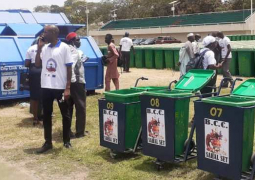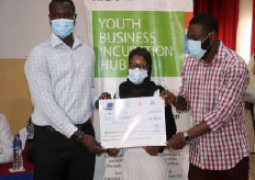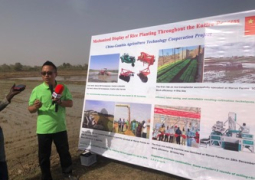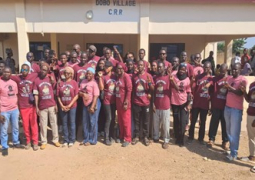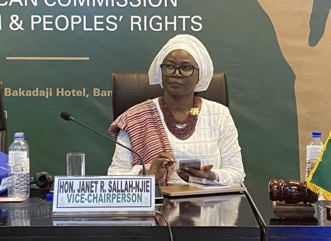
Janet R. Sallah-Njie was speaking recently at the just concluded 79th Ordinary Session during a panel session dubbed –‘The implementation of article 5b of the Maputo Protocol.’
“To also bear in mind that victims should be the center of everything in any approach taken to combat the practice.”
Further on her deliberations, she highlighted that communities will not fully understand the physical and psychological problems associated with the practice.
“Lack of awareness among key stakeholders such as community leaders, parents, health care providers can impede efforts to prevent FGM in Africa and promote abandonment. We also have insufficient legal frame work and enforcement. Many countries have laws that prohibit FGM but the enforcement is being ineffective because this actual speak to the issue of the lack of awareness in terms of both the legal and the law enforcement officers. Therefore, strengthening legal framework is very important in effective implementation of the FGM law.” she said.
She underscored that lack of health care and support services is also a problem, saying access to health care contributes its quota to the challenges to the issue and the support service required for survivors of FGM.
That, she added, doesn’t speak on the issue of prohibition rather the after care of survivors who have already undergone it to prevent severe complication that comes after undergoing the practice.
“Poverty and economic reasons also play a crucial role in the fight against FGM because some people strive and survive and benefit from this practice and therefore, they don’t abandon the practice.”
She flagged that these challenges require a multi-faceted and holistic approach to tackle, further highlighting that despite ‘our collective efforts, there has been recent setbacks that they cannot ignore, citing the attempt by the National Assembly of The Gambia to reverse a ban on FGM is deeply concerning.
“The consequences of this decision are far reaching and demand our immediate attention. Moreover, the decision may weaken the resolve or decision of other countries in their commitment to eradicating FGM so action taken in one country has the effect of actually affecting the continent as a whole.” she stressed.


